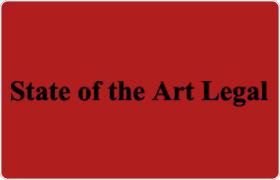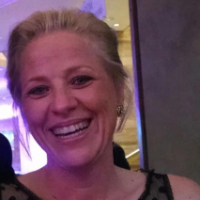 Miami Misdemeanor Lawyers, Florida
Miami Misdemeanor Lawyers, Florida
Sponsored Law Firm
-
 x
x

Click For More Info:
-
State of the Art Legal
200 S.E. 1st Street Suite 505 Miami, FL 33131» view mapCriminal Defense Law Expert Legal Defense
If you're facing a difficult situation, you may benefit from having a lawyer from State of the Art Legal represent you. Call our office in Miami, FL, to set up your appointment.
800-826-0121
Sponsored Lawyers
1-10 of 10 matches
Criminal, Landlord-Tenant, Litigation, Felony, Misdemeanor
When you are dealing with high stakes litigation, you know what is at risk, and so do I. At the Law Offices of Sebastian Ohanian, LLC, I represent good people throughout the Miami area who have been accused of serious crimes or have complex legal issues. I provide aggressive litigation tactics and the highest quality guidance in complicated legal situations.
(more)Criminal, DUI-DWI, Felony, Misdemeanor, Traffic
Recently named as one of the National Trial Lawyers Top 40 Under 40, Richard L. Cooper is a criminal defense attorney handling all types of State and Federal crimes and serving all of Florida. Richard L. Cooper earned his Bachelors degree from Nova Southeastern University’s Farquhar College of Arts and Sciences and his Juris Doctorate from Nova’s Shepard Broad School of Law. Over the years, Mr. Cooper has represented countless defendants in criminal matters from Traffic to Trafficking. It is Mr. Cooper’s unique holistic approach to criminal defense that sets him apart. With many jury verdicts under his belt, Mr. Cooper is an accomplished and skilled trial lawyer. It is that experience that makes him a formidable opponent to the Government and has earned him a reputation of excellence in advocacy for his clients. Mr. Cooper is a proud member member of the Florida Association of Criminal Defense Lawyers and serves all of Florida defending those who have been accused of crimes of all types. Whether it’s petty theft or white collar federal crimes, no case is too big or too small. Mr. Cooper is ready, willing and able to defend your case with passion and zeal. It is this personal touch that all his clients receive that makes Richard L. Cooper stand out in the sea of competitors. Mr. Cooper is a member of the Dade County Bar Association, and the Coral Gables Bar Association. Mr. Cooper knows that being faced with the spectre of serious criminal charges is frightening. You may be worried about spending substantial time in prison, losing personal relationships or business assets you’ve spent many years creating, and permanent damage to your reputation. With the Law Offices of Richard L. Cooper on your side, you can expect a trusted confidant who will work diligently to fully understand your case and determine a road map to help you regain control of your life. Facing criminal charges can be daunting. Make sure you have a strong and skilled voice on your side.
(more)Criminal, Felony, Misdemeanor, Traffic, Federal Trial Practice
Mr. Goodman began his legal career litigating on behalf of those accused of crimes by first interning for the Federal Public Defender's Office for the Middle District of Florida. Wanting to learn just how prosecutors put together their cases against the accused, Mr. Goodman decided to serve as an Assistant State Attorney in Miami-Dade County for over six and a half years. While acting as a prosecutor, Mr. Goodman tried over seventy cases to verdict. During his time as a prosecutor, Mr. Goodman handled death penalty murder cases, murders featured on national television programs, traffic homicides, crimes of violence, as well as complex economic crimes. Due to his expertise in trial work, Mr. Goodman was selected to serve as the Chief of Litigation for the Misdemeanor Domestic Violence Unit, where he was tasked with training over twenty attorneys on the rules of evidence, and how to properly handle and build a case from the initial investigation until a jury verdict. Additionally, Mr. Goodman was chosen to serve on the prestigious Traffic Homicide Unit where he investigated numerous traffic fatalities that ranged from vehicular homicide to DUI manslaughter. Mr. Goodman additionally argued on behalf of the State of Florida before the Florida Parole Commission, and was specially assigned to prosecute multiple cases by the Office of the Governor. As a defense attorney, Mr. Goodman has handled crimes ranging from traffic citations to murder – each case prepared with the idea that a trial may be needed to clear the client from the charges.
(more)Criminal, Felony, Misdemeanor
I am a criminal defense lawyer who had been practicing since 1999 proudly serving Miami, Florida and the surrounding areas.
(more)



 Joshua Alexander Miami, FL
Joshua Alexander Miami, FL Practice AreasExpertise
Practice AreasExpertise




